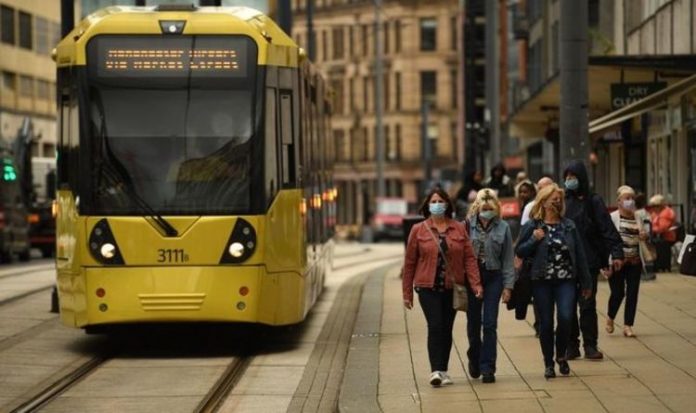Greater Manchester, East Lancashire and West Yorkshire were hit by the new lockdown measures over two weeks ago as the Government attempts to control the spread of COVID-19. Andy Burnham, Mayor of Greater Manchester, said he believed the rules banning people from mixing with other households in homes or gardens will be relaxed.
He said: “Hopefully, we will begin to see some people getting released.
“If things stay as they are I think it is likely that we would see a change.”
Mr Burnham told the Mirror that restrictions will remain and possibly get stricter in areas hardest hit by the virus.
However, he said they could be eased in areas where the infections have lowered.
On Saturday, infection rate figures showed that Oldham had 108.4 cases per 100,000 people, Rochdale 46.3, Manchester 42.3, Salford 32.8 and Tameside 31.8.
The average infection rates across the UK is 17.3 per 100,000.
Mr Burnham said: “Our cases are flattening, with one exception, Oldham, and we are starting to turn the tide in most of our boroughs.
“The hope is, maybe we will have a better time ahead of us.”
READ MORE: Coronavirus map LIVE: Hancock brutally wields axe as he scraps PHE
If infections have stabilised “the case for releasing boroughs with fewer cases is pretty much made”.
When asked whether the change will take place this week, Mr Burnham said “possibly”.
He added: “The numbers can change quite dramatically in four, five days.”
However, he did warn that other parts of the Northern region could have their restrictions for some time.
He said: “It’s a really tough time for everybody. It’s probably not going to get any easier any time soon.
“We have had high numbers of cases. It’s not just isolated hotspots.”
Mr Burnham said he fears a full lockdown could be reimposed in parts where the infection rates are highest.
He added: “I think that would be profoundly damaging.
“They have got to consider alternatives to it, putting more resources into communities that have the highest rates.
“It’s a last resort and we need a more sophisticated approach.”







